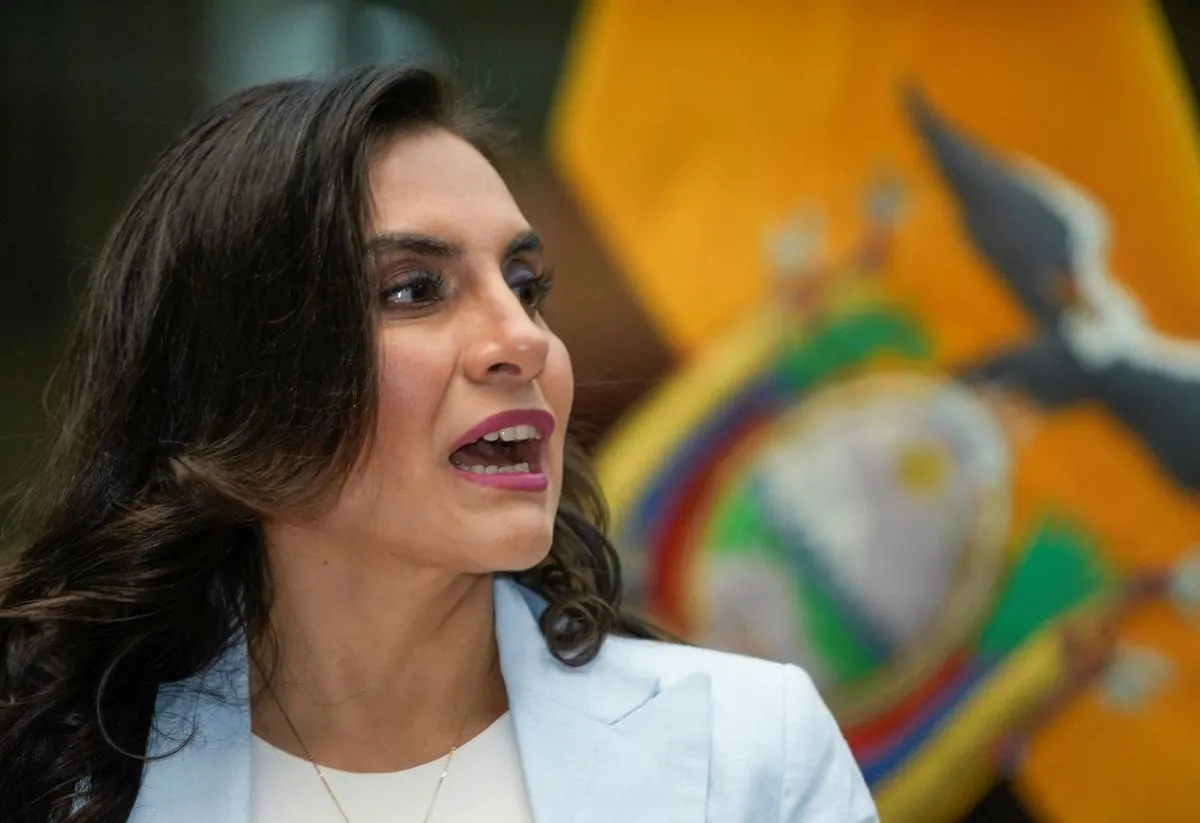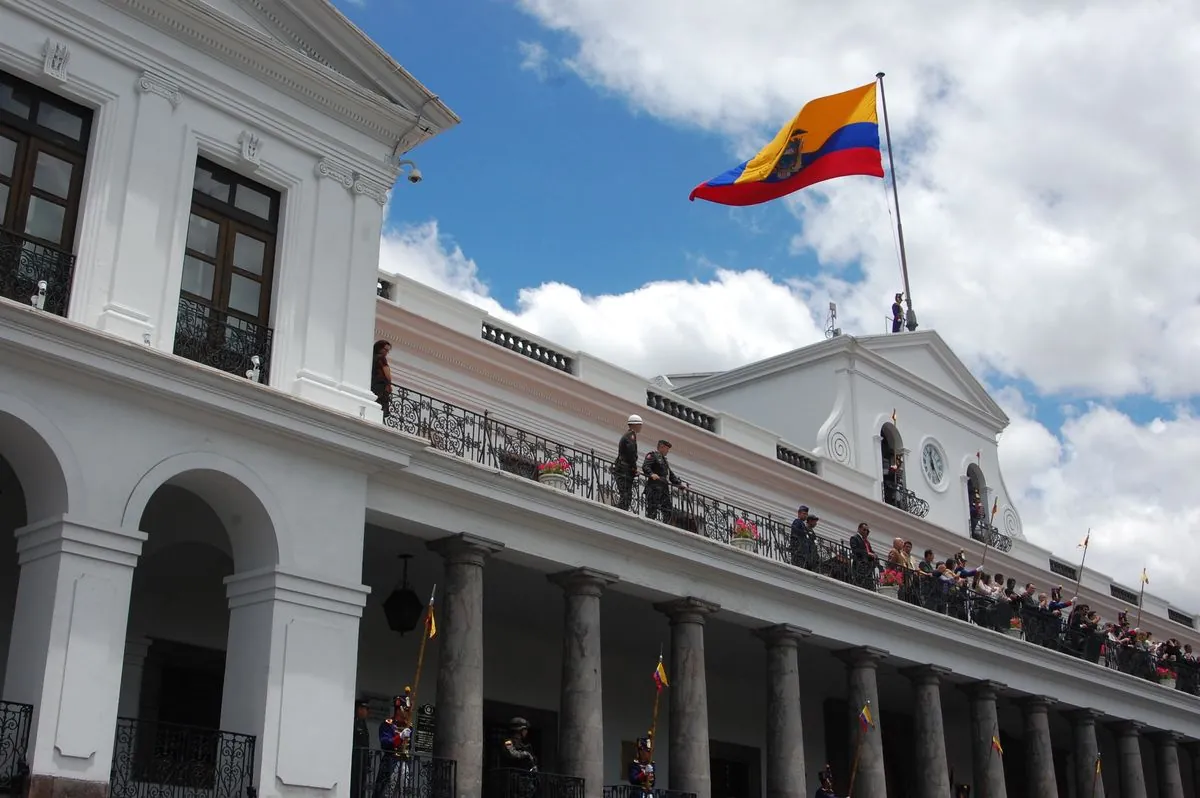Ecuador Government Accuses VP of Coup Attempt Amid Political Turmoil
Ecuador's government labels Vice President Abad's court filing to remove President Noboa as a coup attempt. Abad alleges gender-based political violence, while Noboa focuses on security issues and re-election.

In a recent development that has shaken Ecuador's political landscape, the government has accused Vice President Veronica Abad of attempting a coup. This accusation comes in response to Abad's request for the country's electoral court to remove President Daniel Noboa from office.
The relationship between Noboa and Abad has been strained since the beginning of Noboa's term in November 2023. Abad has been stationed in Tel Aviv since last year, where Noboa assigned her to support peace efforts between Israel and Hamas.
Abad's court filing, which also names government vice minister Esteban Torres, foreign minister Gabriela Sommerfeld, and presidential advisor Diana Jacome, alleges that Noboa has unfairly marginalized her and undermined equal representation of women in his administration.
In her complaint, Abad states:
" I have been practically banished to another country in the middle of a war, they have removed the security that I deserve."
Abad claims that her role has been a "punishment" and that Noboa has attempted to remove her from the country's public life, effectively diminishing the political institutional figure of the vice president.
The government has strongly refuted these allegations, describing Abad's filing as a "clumsy attempt at destabilization" and a "clear attempt at a coup."

This political turmoil unfolds against the backdrop of Ecuador's complex history. As a presidential republic in South America, Ecuador has faced political instability in the past, with numerous presidents ousted since 1997. The country, which gained independence from Spain in 1830, has a rich indigenous heritage and is known for its diverse ecosystems, including the Galápagos Islands.
Noboa, who is currently serving a truncated 17-month term, has focused his administration on addressing spiraling security and crime issues. Despite the ongoing controversy, he has announced his intention to run for a full term in the upcoming February 2025 election.
Ecuador's political landscape is further complicated by its economic reliance on oil exports and its position as one of the world's largest exporters of bananas and flowers. The country, with a population of approximately 17 million, uses the US dollar as its official currency since 2000 and is a member of both the United Nations and the Organization of American States.
As this political drama unfolds, Ecuador continues to grapple with its unique challenges and opportunities. The country, which was the first to recognize the rights of nature in its constitution, must now navigate these internal political tensions while maintaining its commitments to democratic processes and equal representation.


































